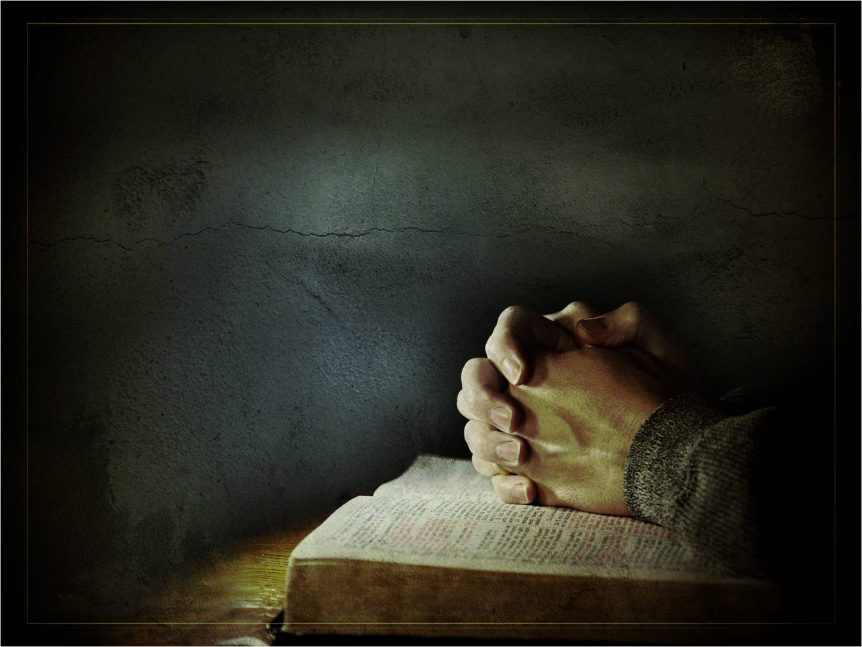Advocating The Use Of The Psalms as Prayer

Lisa is struggling to pray. She’s tired of saying the same words day after day like a broken record stuck in the same groove. She wants to liven up her prayer life – giving it new substance and earnestness. She isn’t asking to get more “into” prayer, more emotion or passion. She senses that if she can sincerely and concretely connect to God her relationship with God can move to another level – deeper and spiritually sharpened. One excellent way to address her desire and enhance her prayer life is to pray the Psalms.
[featured-image single_newwindow=”false”]From the Introduction to The Ancient Faith Psalter comes these words that encourage the use of the Psalms in prayer. I invite you to read them and then find a way to insert the psalms into your praying.
The Psalter is the prayer book of the Church. It has been so since before there was a Christian Church. There is an ancient saying, attributed to St. Athanasius the Great, that “the Psalms are different from the rest of Scripture in that while the rest of Scripture speaks to us, the Psalms speak for us.” When we pray the Psalms, we are praying the words God has given us to pray. It has also been said that the story of God’s dealing with Israel is an allegory of each person’s spiritual journey, the story of God’s dealings with every human soul. Therefore, in as much as the Psalms sum up and interpret the story of Israel, the Psalms also sum up and interpret the spiritual journey of every human being.
The Psalms touch every experience of human life in our fallen world. Every joy and every terror, every fear and every hope are found expressed in the Psalms.Some psalms are beautiful, to the point of seeming sentimental; others are bloody and apparently vindictive. Such a range of emotion and experience is offered to us in prayer because in some inner or outer way, at some time in our life, we will all experience this full range of thoughts and feelings. In fact, because some of these thoughts and feelings are so extreme, so evidently horrible, it is only through praying the Psalms that we come to realize and then confess to ourselves and to God in prayer that yes, even such terrible things as these have at one time or another passed through our minds and perhaps even our hands.
This literal reading of the Psalms, however, is only the beginning. As one prays the Psalms, one soon begins to realize that the enemy, the Amalekite or Philistine, the nations that rage against God, are not people or situations outside myself but are most poignantly referring to the wicked impulses and evil thoughts I must battle within myself. The Psalmist’s cry for deliverance becomes my own as I see within my own heart and mind the struggle between good and evil, the betraying thought, the accusing word, or the mocking laugh. The Psalms give us words, images, and metaphors by which we can cry out to God for help in the midst of our inner struggles. What the Psalmist describes externally speaks to our inner struggles because all our outer conflict is a reflection of inner struggle. Is this not what Jesus told us — it is out of the heart that murders and adultery flow (Matt. 15:19)?
The Psalter is a prophetic book. It speaks prophetically of Christ, but it also speaks prophetically of all who are in Christ. Just as “strong bulls surround” Christ on the cross, so too all who pick up their cross and follow Christ experience, in one form or another, this attack of the strong and come to know their own weakness in resisting it, their own need to be delivered from “the power of the dog…the mouth of the lion…[and] the horns of the wild bulls.” Similarly, the prophetic declaration of the Resurrection of Christ, “Let God arise, let His enemies be scattered,” is also our declaration as we experience moments of deliverance and help over our inner enemies. The Psalms speak of God and man, Christ and Christian, inner and outer conflict, victory and defeat, heaven and earth, wisdom and foolishness. With few words and much meaning, the Psalms provide the images and words for every prayer, every need, every celebration on our journey through this world.
— from the Introduction to The Ancient Faith Psalter (pp. 5-7, Ancient Faith Publishing, 2016)
I urge you to pray the Psalms. You’ll be thankful that you did.
Dr. K
